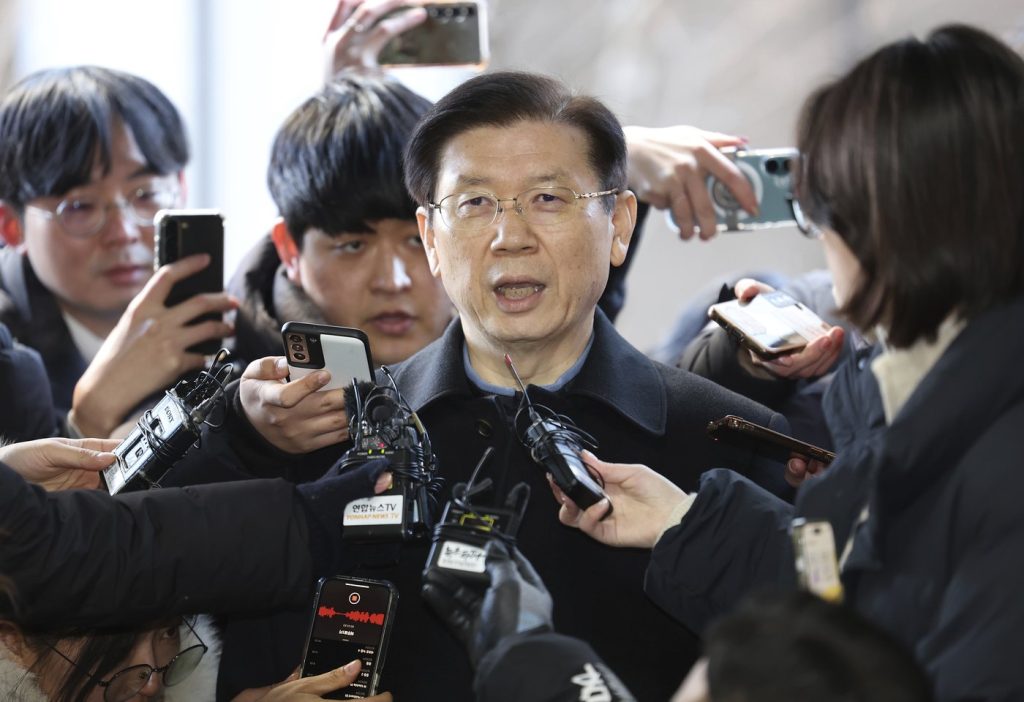SEOUL, South Korea (AP) – South Korean police have questioned the chief of the presidential security service, Park Jong-joon, amid escalating tensions between two investigating agencies regarding the detainment of impeached President Yoon Suk Yeol. This clash comes as the Corruption Investigation Office for High-Ranking Officials and the police prepare for a renewed attempt to take Yoon into custody, focusing on his brief martial law declaration on December 3, which is being scrutinized as a possible attempted rebellion.
The presidential security service previously obstructed efforts to detain Yoon at his official residence, where he has remained secluded for several weeks. Park, tasked with the duty to protect the president, has warned of the potential for “bloodshed” during this confrontation, as critics claim that his agency is acting like Yoon's personal military force.
Park appeared for questioning after ignoring two earlier summonses, facing allegations of obstructing justice following the security service's resistance against investigators last week. Both the anti-corruption office and police have expressed their intent to make a second, more aggressive attempt to detain Yoon, with warnings that any personnel impeding this process could face arrest.
As the political climate intensifies, Yoon is currently confined within the fortified grounds of his official residence in Seoul, where barriers like barbed wire and vehicles restrict access. His earlier martial law announcement, which involved deploying troops around the National Assembly, was short-lived and rescinded after lawmakers managed to break through the cordon and vote against it.
Following his impeachment by an opposition-majority Assembly on December 14, which accused him of rebellion, Yoon's presidential powers have been suspended. The Constitutional Court is currently deliberating whether to affirm his removal or reject the allegations, allowing for his reinstatement.
Speculations are growing that law enforcement may also pursue detaining Park alongside other leaders of the presidential security service before another attempt is made to act on Yoon's renewed detainment warrant issued by a Seoul court on Tuesday. Upon arriving for police questioning, Park reiterated his stance against aggression, emphasizing that any such confrontation would be detrimental to national dignity and public concern.
Park asserts that he has reached out multiple times to Deputy Prime Minister Choi Sang-mok, seeking a peaceful resolution with law enforcement, as well as contacting Yoon's legal team for mediation, although he claims responses have been unsatisfactory. Yoon's legal counsel has accused the police of undermining the authority of the presidential security service, labeling the scenario as a significant breach of national security.
While the presidential security service is mandated to protect Yoon, there are allegations that their actions could be deemed illegal, particularly when it comes to resisting court-ordered detentions. National Court Administration head Cheon Dae-yeop noted that such resistance might constitute a crime, saying it could potentially obstruct official duties.
Despite the president's wide-ranging immunity while in office, this protection does not extend to severe allegations such as rebellion or treason. Yoon’s legal team has questioned the integrity of the recent detainment warrant issued by the Seoul Western District Court, arguing that the anti-corruption agency lacks the authority to pursue rebellion inquiries.
They maintain that due to legal protections against searches related to military secrets, detention warrants cannot be enforced at Yoon's residence without his consent. Yoon's attorneys have called for formal charges or arrest warrants to follow due legal procedures, insisting that only an arrest warrant approved by the Seoul Central District Court would be acceptable for Yoon to comply.
They further allege that the anti-corruption agency deliberately sought a court perceived to be more favorable, despite the jurisdictional context of Yoon’s residence being under the purview of the Western District Court.










